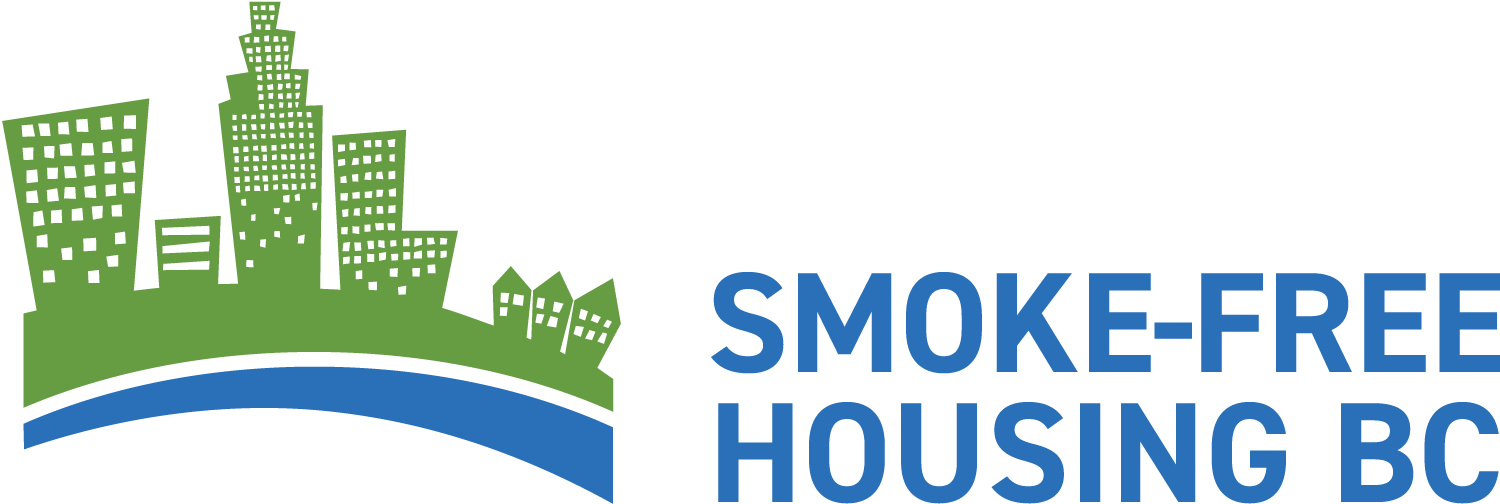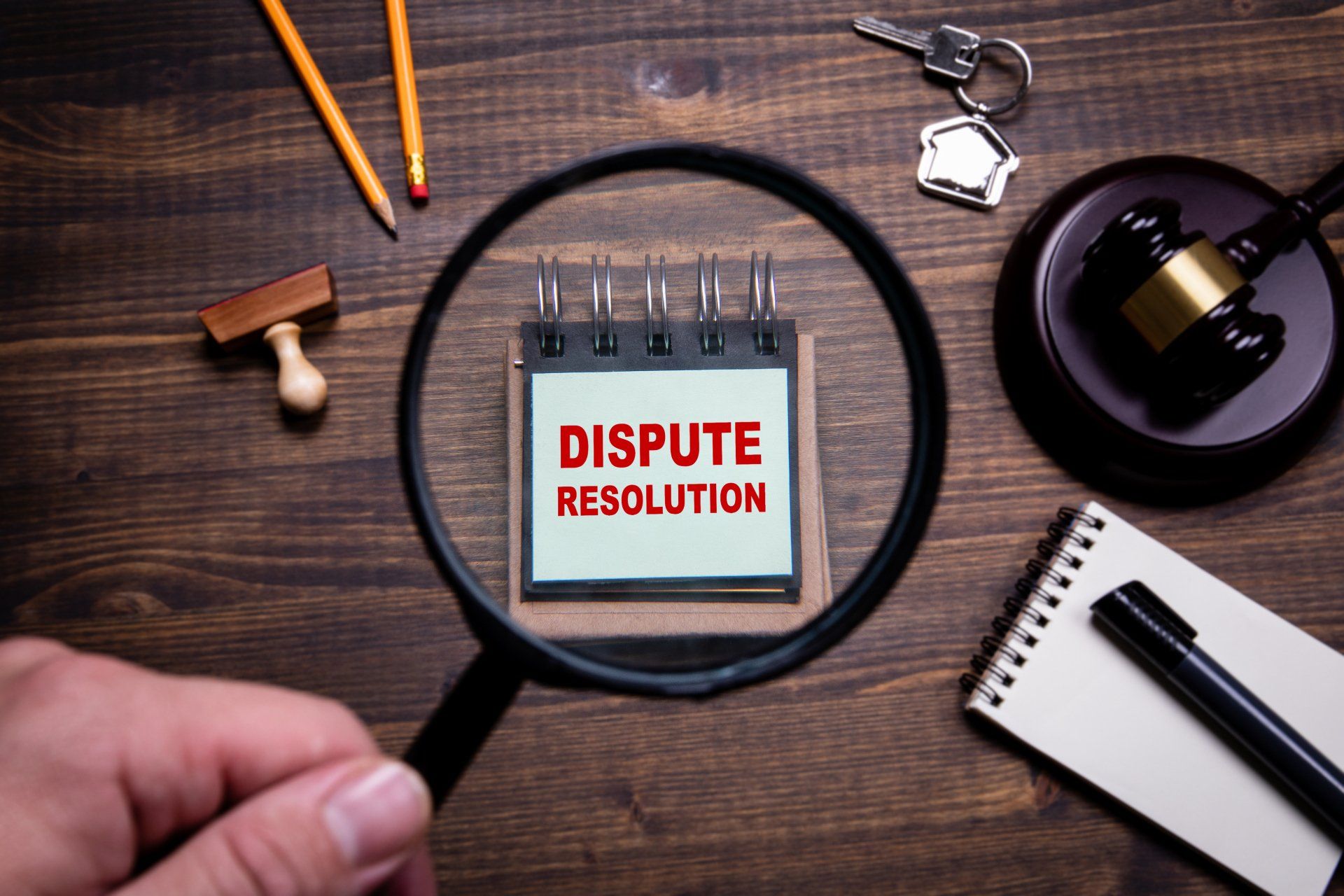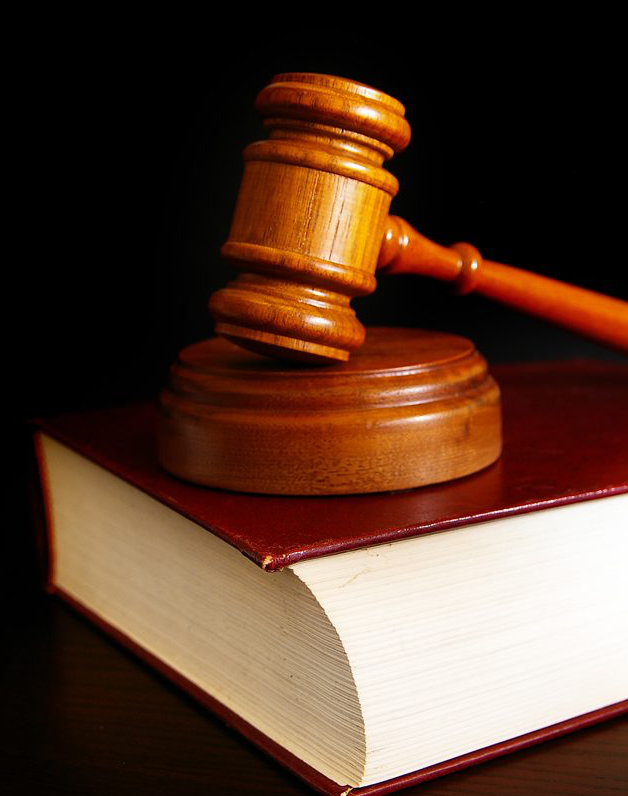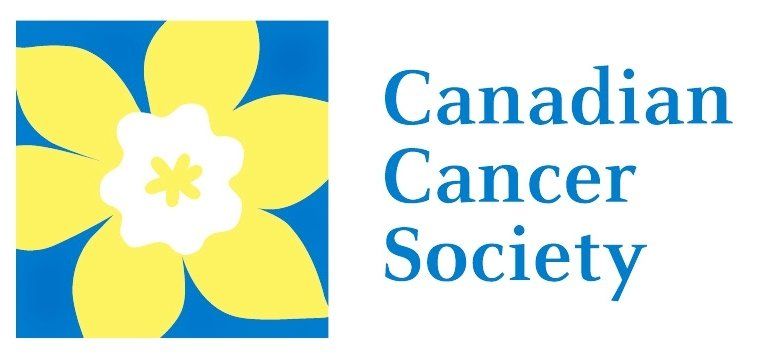Tenant Resources
Increasing numbers of residents living in multi-unit housing are finding themselves trapped with unwelcome second-hand smoke infiltrating their homes from neighbouring apartments. In many cases their homes have become uninhabitable and they are desperate for relief from the smoke. Many individuals have exhausted all attempts to successfully resolve the issue themselves, including negotiating with neighbours who smoke and asking for assistance from landlords. Some are forced to either move or apply to tribunals or the courts for help, at great personal and emotional distress and significant financial expense.
While addressing second-hand smoke in multi-unit housing can be challenging, there are measures you can take to protect yourself and your family from exposure to this toxic intrusion into your home. This section provides you with tools and concrete steps to secure your right to live free from this unreasonable and serious interference with your tenancy and threat to your health.
Taking Action: Steps to Address Second-Hand Smoke Exposure
The "steps" listed below are also available as a downloadable/printable pdf
Legal Information
Fighting for the right to breathe clean air in your own home can be a confusing undertaking with no clear path to success. This section aims to simplify and clarify the various laws and regulations that govern smoking in residential buildings in BC, including:
- Provincial legislation:
- The Residential Tenancy Act
- The Tobacco and Vapour Products Control Act
- Cannabis Control and Licensing Act and regulations
- The Human Rights Code
- Municipal bylaws: Many local governments have Smoke-Free Bylaws for public places, and some are more stringent than the provincial laws.
- Case law highlights and common questions
on second-hand smoke in multi-unit housing.
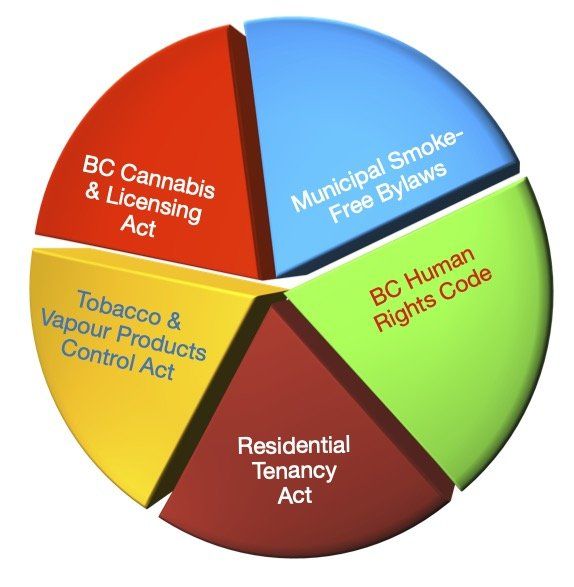
BC Laws
This section provides a brief description of the laws and regulations that govern smoking in residential multi-unit housing in BC.
Case Law Highlights
This section highlights a few key decisions coming out of the BC Residential Tenancy Branch, the BC Human Rights Tribunal and the BC Civil Resolution Tribunal concerning the issue of second-hand smoke in multi-unit housing. For more detailed information, see the pdf download case law highlights.
- Bowker v. Strata Plan NWS 2539, 2019 BC Human Rights Tribunal: A strata was ordered to pay $7500 for failure to accommodate an owner with a disability that was negatively impacted by exposure to second-hand smoke.
- 2018 Residential Tenancy decision by Saskatchewan Court: recognized tenants' right to be protected from second-hand smoke. The landlord (Regina Housing Authority) was ordered to compensate tenants of 3 different apartment buildings for failure to address second-hand smoke complaints. As a result of this decision, on June 20, 2018, the Saskatchewan Government announced that all social housing in the province would be 100% smoke-free effective August 2018.
- Leary v. Strata Plan VR1001, 2016 BC Human Rights Tribunal: The Strata Corporation was ordered to pay $7500 damages to the owner impacted by exposure to second-hand smoke, despite the fact that smoking was allowed in the building.
- BC Residential Tenancy Branch: Dispute codes: CNC, FF October 19, 2015: Landlord’s notice to terminate tenancy upheld due to cannabis second-hand smoke nuisance – despite there being no term in the tenancy banning smoking - and the offending tenants claimed they had approval for medical cannabis. The landlord established sufficient cause to end the tenancy of the smoking tenants and dismissed the smoking tenant’s application to cancel the Notice To End Tenancy.
- The Owners, Strata Plan NW 1815 v. Aradi, 2016 BCSC 105: BC Supreme Court: ordered an owner who smoked in violation of a non-smoking bylaw to ‘butt out.” Despite the smoker claiming his smoking was a disability to be accommodated, the Judge found that in balancing the rights of the neighbours not to be exposed to second-hand smoke, Mr. Aradi was ordered to smoke outside and off the property.
- Lawrence v. Kaveh, 2010 BCSC 1403 (CanLII), The BC Supreme Court found that the Dispute Resolution Officer at the Residential Tenancy Branch had erred in finding the tenant liable to pay for a breach of contract because she moved out of the premises due to being exposed to second-hand smoke. The Judge ordered the decisions set aside, and remitted the disputes for rehearing. While the tenancy agreement did not specifically entitle the tenant to a smoke-free unit, the DRO did not consider:
- the tenant's right to quite enjoyment. “It is conceivable that the exposure of a tenant and her children to second hand smoke, with all of the associated health risks, could interfere with quiet enjoyment or breach the tenant’s right to be free from unreasonable disturbance.”
- “A landlord would not normally be held responsible for the actions of other tenants unless notified that a problem exists, although it may be sufficient to show proof that the landlord was aware of a problem and failed to take reasonable steps to correct it.”
- The Owners, Strata Plan LMS 2900 v. Mathew Hardy, 2016 BC Civil Resolution Tribunal: upheld a Non-Smoking Bylaw banning the smoking of medical cannabis. An owner sought accommodation for his disability and be exempted from the bylaw. The Tribunal found that there was no reason he couldn’t ingest his medicine rather than smoke it and was ordered to refrain from smoking in his unit and the entire property.
As a result of Court and Tribunal decisions supporting a resident's right to be protected from exposure to second-hand smoke, more and more housing providers are choosing to implement 100% smoke-free policies. Consider letting your landlord know about some of these cases - or referring them to our website for more reasons to go smoke-free.
To review past Arbitrator decisions, visit the Residential Tenancy Branch and enter 'second-hand smoke' in the field to conduct a search.
For more detailed highlights of case law on second-hand smoke, view the pdf Case Law Highlights in Strata Complexes below. Many of these cases are used to support tenants who have applied to the Residential Tenancy Branch or the Human Rights Tribunal for compensation.
See
Tools & Resources
for a list of legal resources to support residents who want to apply to Tribunals for compensation.
pdf download - Case Law Highlights: Second-Hand Smoke Complaints in Strata Complexes - for printing
Common Questions
This section provides information on common questions we receive from tenants about how to address exposure to second-hand smoke, what rights tenants have to be free from unwanted smoke entering their homes, and what responsibilities landlords have for resolving the problem.
This section is for informational purposes only and should not be considered legal advice.
pdf download - TENANTS - Common Questions - for printing
Tools & Resources
This section provides a range of downloadable tools, resources and links to help you address the problem of second-hand smoke in your apartment.
Tools
pdf -
Moving to a 100% Smoke-Free Building
pdf - Tenants - Common Questions
pdf - Case Law Highlights: Second-Hand Smoke Complaints in Strata Complexes
pdf - BC Laws - Various Laws that Govern Smoking in Residential Multi-Unit Housing
pdf - Steps to Address Second-Hand Smoke Exposure
pdf
-
Residential Tenancy Policy Guideline: 6 Entitlement to Quiet Enjoyment
Legal Resources
TRAC Tenant Resource and Advisory Centre
Provide tenants with free legal education and representation. They operate a free Tenant Hotline, including the Tenant Survival Guide. Call the Tenant Hotline for information on your rights at Vancouver T 604.255.0546 or 1.800.665.1185 (Outside Greater Vancouver)
Provides subsidized legal aid to British Columbians.
Community Legal Assistance Society (CLAS)
Provides legal assistance to low income British Columbians or those with physical or mental disabilities. CLAS also provides assistance through the UBC Law Students Legal Advice Program.
Call 604.685.3425
Law Students’ Legal Advice Program
UBC law students provide legal advice and assistance for people who are physically, mentally, socially, economically or otherwise disadvantaged or whose human rights need protection.
Provide free legal services for people who need help with human rights complaints.
Disability Alliance BC
Their
Disability Law Clinic is able to provide free legal advice and representation to people with disabilities who are dealing with human rights violations and discrimination.
A quasi-judicial body that deals with human rights complaints that are covered by the BC Human Rights Code. Resolution can be done through mediation or in a hearing.
BC Government Online Dispute Resolution
Dispute resolution is a formal process for resolving disputes between landlords and tenants in BC.
